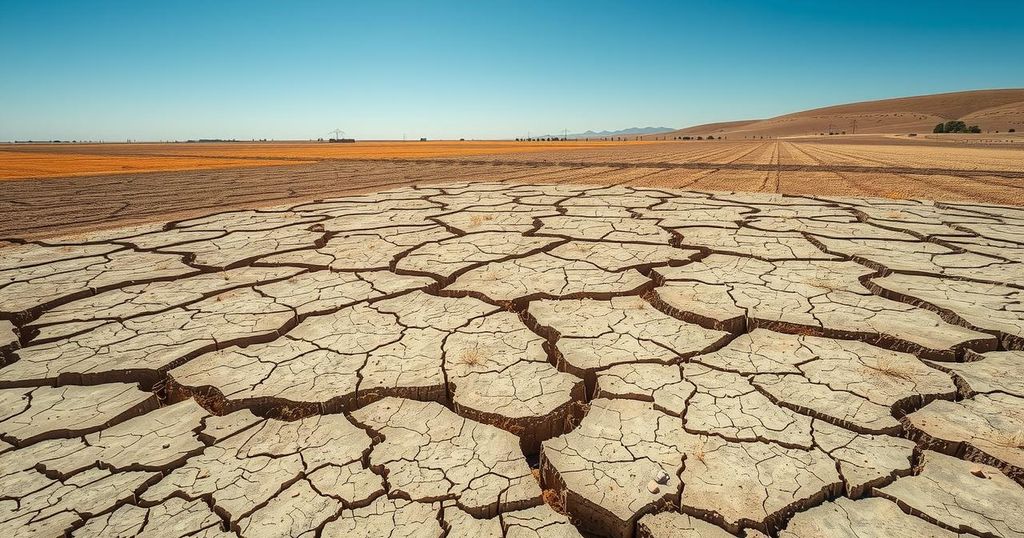The Oxfam report reveals that Eastern and Southern Africa faces a worsening water crisis, with hunger rising by 80% and 116 million people lacking safe drinking water. Extreme weather events driven by climate change have compounded food insecurity, particularly affecting small-scale farmers. There is an urgent need for increased investments in water security and support for vulnerable communities, especially women and girls.
The Oxfam report titled “Water-Driven Hunger: How the Climate Crisis Fuels Africa’s Food Emergency” indicates a dire situation in Eastern and Southern Africa, where hunger has increased by nearly 80 percent over the past five years due to a worsening water crisis. Approximately 116 million individuals in eight countries—Ethiopia, Kenya, Malawi, Mozambique, Somalia, South Sudan, Zambia, and Zimbabwe—are enduring severe water shortages. The findings illustrate that nearly 40 percent of the population lack access to safe drinking water, fundamentally undermining food security.
This ongoing climate crisis exacerbates extreme weather patterns such as droughts and floods, leading to significant losses for small-scale farmers, pastoralists, and fisherpersons. As reported, pivotal environmental changes have resulted in the accelerated melting of Africa’s tropical glaciers and groundwater depletion, devastating the livelihoods of millions across the region. The current La Niña weather pattern is anticipated to heighten flooding risks in Southern Africa and exacerbate drought conditions in Eastern Africa, further jeopardizing food availability and economic stability.
The rapid frequency of global flash floods has surged by 20 times between 2000 and 2022, contributing to increased morbidity and economic strain in vulnerable communities. Alongside these environmental factors, persistent poverty and social inequalities complicate the water crisis, with a shortfall in the necessary investments for water security—a target of US$50 billion annually, of which less than half is currently met by African governments.
Fati N’Zi-Hassane, Director of Oxfam in Africa, emphasized the severe impact of the climate crisis on real individuals. The report underscores that 91 percent of small-scale farmers in the studied countries rely solely on rainwater for their agricultural activities, compelling them to adapt rapidly to unpredictable weather changes that have disrupted traditional farming times.
The inequities are stark, particularly for women and girls, who bear the brunt of the water crisis by spending valuable time collecting water, often in unsafe conditions. This time could otherwise be allocated toward education or improving family income. N’Zi-Hassane iterated the necessity for richer nations to fulfill their climate finance obligations, asserting that “African governments must also double down on their investment in water infrastructure” to support vulnerable communities effectively.
The report elucidates findings that, in Ethiopia, food insecurity has soared by 175 percent, with millions struggling to secure basic sustenance. Similarly, Kenya has experienced significant land dryness, thwarting agricultural productivity. In Somalia, a missed rainy season poses an imminent threat to millions, pushing them into crisis-level hunger. The collective failures in governance and infrastructure have dire consequences, necessitating immediate action and investment in long-term solutions to ensure water security and address the multifaceted challenges stemming from climate change.
The Oxfam report highlights a pressing crisis of hunger and water scarcity in Eastern and Southern Africa, where nearly 116 million people are affected amidst compounding climate change challenges. The evidence presented underscores urgent calls for financial commitments from wealthier nations and investment in local water infrastructure. Focused support for the most vulnerable communities, particularly women and small-scale farmers, is essential as they navigate the heightened risks associated with climate unpredictability.
Original Source: reliefweb.int




